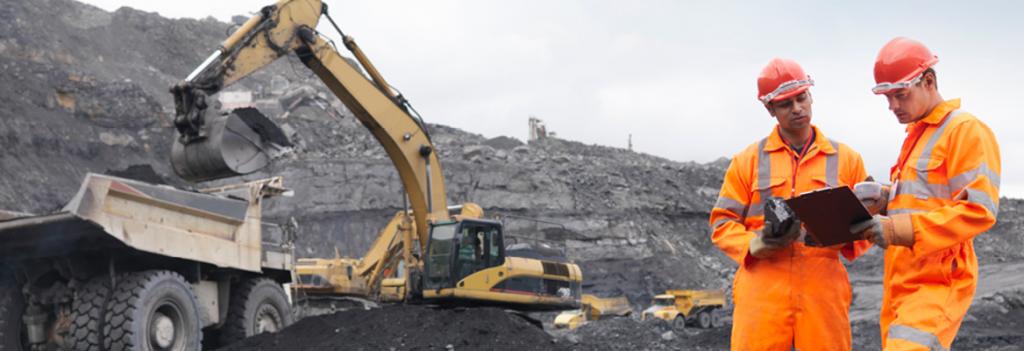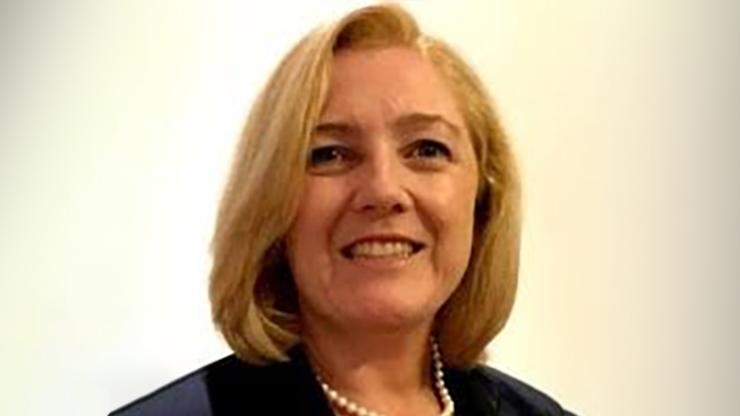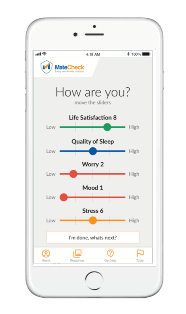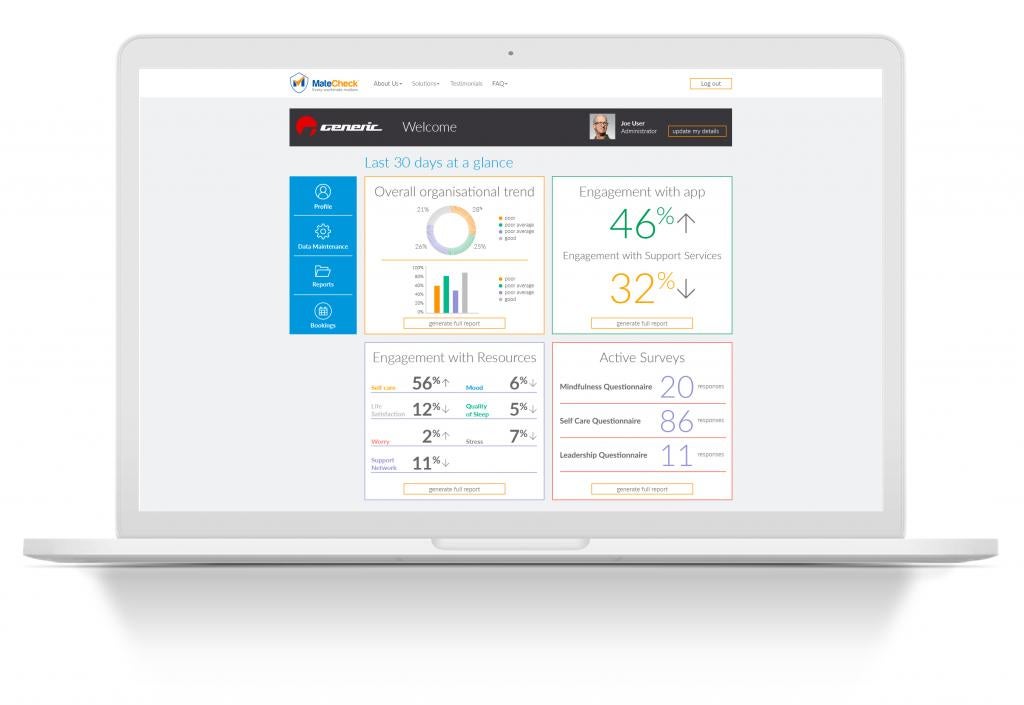
The wellbeing of employees will be top-of-mind for many organisations right now. The financial and emotional pressures being placed on individuals are immense, particularly for rostered workforces in the mining and resources industry.
Flight Centre Travel Group's Lindsay Porter, Resources Industry Partnerships Specialist, sat down (virtually of course) with MateCheck’s CEO Elise Hogan to learn more about how companies with a fly-in-fly-out (FIFO) or drive-in-drive-out (DIDO) workforce can help their employees stay connected during COVID-19.

Tell us a bit about yourself?
I joined the MateCheck team about 18 months ago. My background has been leading teams and launching technology businesses in the medical devices and innovation space. I was excited to join the team at MateCheck because although we are not producing medical devices, we have the same company ethos – saving lives and helping people.

What is MateCheck?
MateCheck was created by Paul O’Brien and Amrit Wijesuriya. As leaders in the charter aviation space, they were experiencing first hand some of the unique challenges associated with FIFO work and although resource companies were motivated to provide services to support mental health and wellbeing, the message was not resonating and there were a large number of people struggling with their mental health and not receiving the support that they needed.
The MateCheck solution was conceived, allowing workers to “check-in” with their mental health and wellbeing on a regular basis, and connect them to support – easily, confidentially and quickly, all from their smartphone device.
“Our mantra at MateCheck is that mental health and wellbeing is everybody’s business, and the MateCheck solution aims to engage everybody on a journey of wellbeing.”
How does MateCheck help companies with a FIFO or DIDO workforce?
The history and development of the MateCheck Solution was closely aligned to the needs of the mining and resource industry. The nature of the MateCheck solution allows organisations to deliver content and support remotely to their people, which is ideally suited to the FIFO/DIDO workforce.
In the current environment of COVID-19, there are many other industries that are undergoing major changes in the way their teams work and accessible digital support and content has never been more important. We deliver coordinated and integrated programs to our mining clients focusing on the specific needs of the organisation.
In a pre-COVID world, what were the biggest wellbeing and mental health risk factors for FIFO workforces?
Common themes include:
- adjustment difficulty;
- role or relationship conflict at home, particularly when there is job uncertainty or rigidity of job structure and/or work arrangements that negatively affect the ‘balance’ and routines home life such as child management;
- job structure has often also been implicated as playing a significant role in sleep problems and stress e.g. night shift work;
- Prolonged emotional stress, feelings of loneliness, increased substance abuse, and sleep deprivation are common responses to challenges in FIFO work; they are also risk factors for conditions such as anxiety and depression.
The way crews at mine sites or other resource companies operate has changed a lot since COVID-19 happened. What have been the biggest changes you’ve noticed?
Many resource companies have had to adapt their swings and work cycles to comply with government regulations that limit the ability of staff to move from state to state. This has resulted in many staff being isolated away from their families and enduring a radically changed work routine and roster.
Also, for many workers in support or administrative roles, the transition to working remotely from home has presented many challenges to families with young children being home schooled at the same time. On the other hand, however, many also report that the changes to their working environment has resulted in fewer “distractions” enabling higher levels of productivity.
Some crews may now have to spend their R&R in isolation, their swings are longer and they are spending more time away from their family. What impact do you think this would have on their mental health and their families?
Humans are largely social by nature, so it is not surprising that challenges to our well-being may emerge or be amplified at this time, as some of the social activities many of us would utilise to ‘self-regulate’ have been ‘put on hold’ in response to public health orders.
Increased levels of stress and feelings of loneliness triggered by external factors (eg. the requirement to physically isolate away from family) can lead to exacerbation of mental health concerns and existing mental illness like anxiety and depression, including associated factors such as an increase in substance use, insomnia or sleep disruption, fatigue, low motivation, poor appetite and diet – all of which can impact our relationships with family and/or our loved ones.
How can companies help support crew members in this situation?
Physical isolation does not mean disconnection – it’s important that the lines of communication between leaders and/or managers and crews remain open, and perhaps even more so during times of uncertainty and high stress. Maintaining a sense of structure, routine and regular interaction such as scheduled meetings and follow up phone calls and/or video conferencing can be helpful to maintain connection and build a sense of comradery, and ultimately alignment with the shared vision/purpose.
In addition, companies can promote their existing well-being initiatives (eg. EAPs) available for staff or collaborate with their current well-being provider(s) to develop and deliver support programs targeted at minimising the negative effects of stress and promoting preventative health measures that build resilience.
What are some easy techniques organisations or FIFO crew members can use to improve mental health?
Allowing time for and encouraging individuals to engage in self-care activities eg. daily exercise, preparing healthy meals, relaxation, adequate sleep, reaching out to family/friends/colleagues via phone or video.
To accommodate this, it’s important to enable flexibility of work arrangements and/or necessary changes to job structure, as well as re-evaluating performance targets and/or expectations in the context of external environmental pressures.
What are the signs to look for if a crew member is struggling?
Some of the warning signs may include:
- behaving ‘out of character’;
- increased substance use;
- frequent mood swings;
- fatigue or complaining about not being able to sleep;
- seems distant or disengaged (eg. avoiding conversation);
- significant performance decline;
- talking negatively about themselves or others.
Everyone has a role to play in helping reduce ‘self-stigma’. Self-stigma is the idea that others will think poorly of us when we are suffering with mental distress. We can reduce self-stigma by doing and saying things that help ‘normalise’ mental health struggles and reassure others that we are there to help support one another through challenges.
If you’re concerned about someone’s well-being, you could approach them in private and ask them to share their story and listen.
If appropriate, leaders may also open-up and share their own mental health struggles to further help normalise feelings and encourage help-seeking behaviours.
You can also let the person know you are there for them if they need someone to listen, and encourage help-seeking through existing support programs or external support eg. EAP, counselling assistance, after-hours support providers, referral to a doctor etc.
How can companies better support families with a member who has a FIFO job?
Studies have shown that FIFO partners can suffer higher levels of stress than other partners or parents in the general community. Many FIFO workers, especially in the current COVID era are living a long-distance commuting lifestyle where they can be separated for up to six weeks at a time.
Communication and connection are important in any relationship and FIFO families need to develop coping strategies that fulfil this need.
At MateCheck, we see the majority of companies extend mental health and wellbeing programs and services to all family members of their employees. It is equally important to support families, and develop understanding and empathy for the challenges associated with each role in the FIFO family.
During the current COVID-19 government restrictions, the unique stressors linked with potential mental health decline can be experienced by family members “holding the fort” at home as well as the workers themselves. Coping with “work from home”, homeschooling, isolation and a partner on a longer work swing presents unique challenges that are exacerbated by COVID-19. We offer our programs to all family members of our clients.
What can families do to help support their loved one?
A FIFO life may not be for everyone. Making decisions together and engaging in open communication as you navigate the FIFO lifestyle is critical. Like any relationship, life will present challenges, but partnering in success is critical. It’s also important that family members take advantage of the services and support that is offered by their partner’s organisation, and seek help and support from employee assistance programs and solutions.
How can companies better prepare ‘green skins’ (employees who are new to FIFO) for the FIFO way of life? Particularly during COVID-19?
We need to get more comfortable with the concept of seeing mental health and wellbeing in the same light as all of the other aspects of occupational safety. When inducting new staff, there are rigorous and mandatory requirements for safety training and compliance, and yet we still struggle with the concept of a safety check in for mental health and wellbeing. Particularly in the times of COVID-19 it is critical that we are checking in with our staff on a regular basis and monitoring their wellbeing remotely. This should be perceived in the same way as any other fit for work parameter that is routinely checked in many workplaces.
When preparing new employees for the FIFO way of life, it is critical to set expectations around self-care, wellbeing check-in and reinforce a culture of open communication about mental health.
